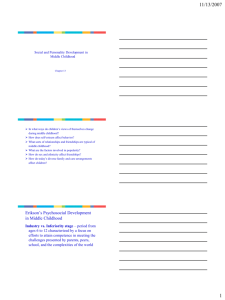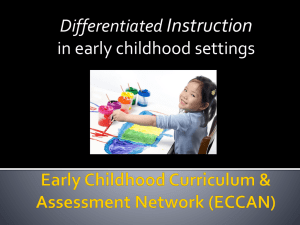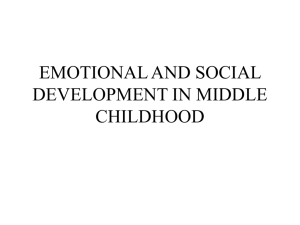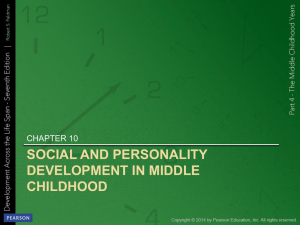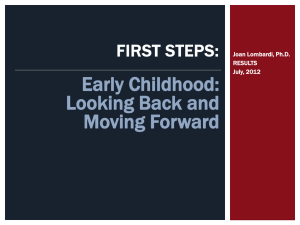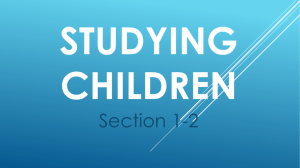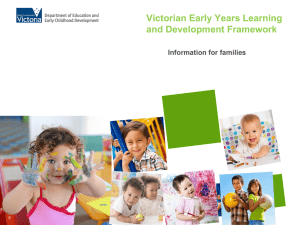Self Esteem, Friendships and Social Skills: What You Need to Help
advertisement
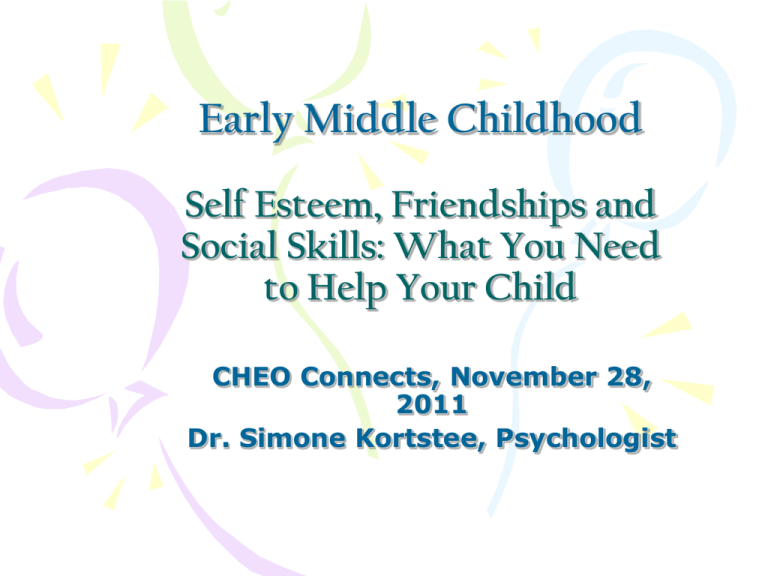
Early Middle Childhood Self Esteem, Friendships and Social Skills: What You Need to Help Your Child CHEO Connects, November 28, 2011 Dr. Simone Kortstee, Psychologist What will we talk about today • Early Middle Childhood (6-9): Normal Development • What are the red flags for disruptions in normal development? • What can we do to facilitate healthy self esteem and social skills Middle Childhood: Normal Development Social and Emotional Changes • Continuing development of behavioural and emotional regulation • Increased independence from parents and family • Their world becomes larger and children begin to understand their place in it • Friendships and relationships outside immediate family become important • Children want to be accepted as part of a group Middle Childhood: Normal Development Thinking and Learning • Fast development of thinking / reasoning skills • Better able to describe experiences, talk about thoughts and feelings • Less self-centered: less focus on self and more concern for others Middle Childhood: Normal Development • Mentally and physically ready to be part of a greater context. • Through social interaction children begin to develop a sense of pride in their abilities and accomplishments. • Children who are encouraged by their parents / teachers start to enjoy that they can accomplish something. • They develop a feeling of competence and belief in their skills. • It feels good when that happens Middle Childhood: Normal Development Summary During this stage, children are ready to enter a larger social world. Through interaction with other children as well as their parents, teachers, and other adults in their lives, they start to enjoy their accomplishments and begin to develop a sense of belonging. What to look for? • Wide range of normal: children are different in terms of temperament and personality. • Be accepting of individual differences • Difficulties with emotional / behavioural regulation • Irritability / sadness • Fears and anxieties What to look for? • Difficulties with friendships • Learning Difficulties • Sleep difficulties • Withdrawal / aches and pains / not wanting to go to school How to support your child developing healthy self-esteem and social skills? Talk with your child at their developmental level. Talking with your child at this age allows your child to share and sort out their thoughts and feelings, build a sense of connection and belonging, and sets the stage for continued communication at later stages of development. Set the stage now, while your child wants to talk to you, be with you, be like you How to support your child developing healthy self-esteem and social skills? Spend time with your child, live a family life Play together and do chores together Guide your child’s thinking and problem solving Be part of your child’s world Share your values Provide a sense of belonging! How to support your child developing healthy self-esteem and social skills? Facilitate unstructured play Arrange play opportunities: time, playmates. Allow free play without interference of adults How to support your child developing healthy self-esteem and social skills? Positive Parenting Show affection, be kind. Build trust. Set clear expectations and create predictable routines. Show confidence and be in charge. Instill confidence by realistic praise. Praise or correct the behaviour not the child. Problem Solve collaboratively, while remaining in charge. Welcome your child’s experiences as an opportunity to talk. What about bullies? Talk with your child about bullies and teach them what to do. Ensure that your child feels safe to speak to you and involve your child in how to solve the problem
